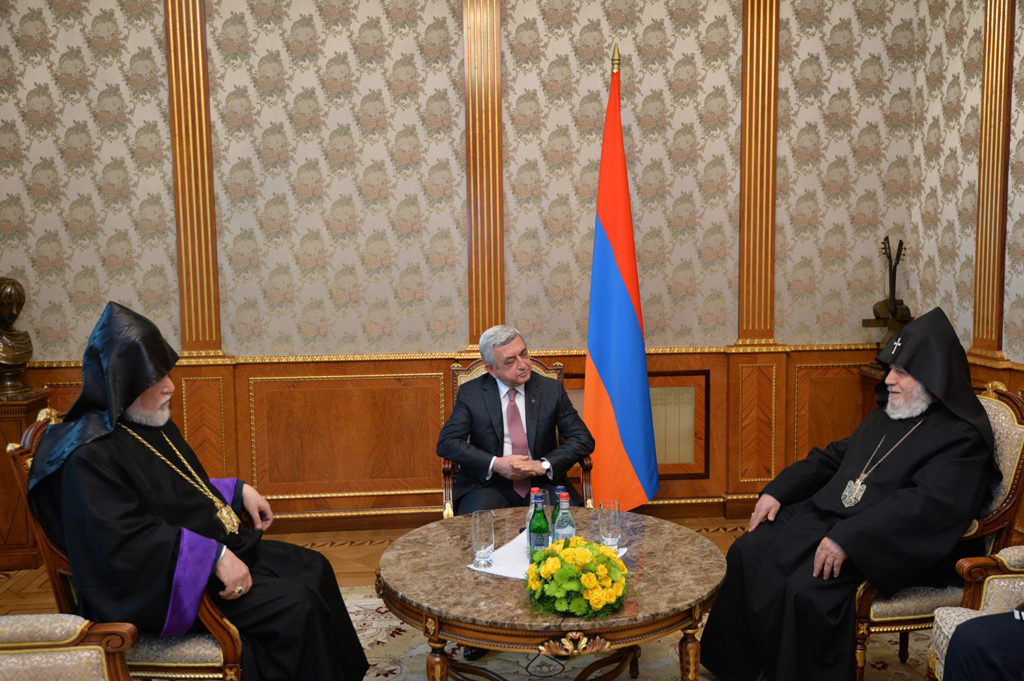The two protocols establishing diplomatic relations between Turkey and Armenia and also determining the areas of cooperation along with the organization to achieve this cooperation were signed last year on October 10 in Zurich. However, for reasons peculiar to both parties, the protocols were not ratified and as a result, were not implemented. Turkey’s main reason for non-ratification is its close relations with Azerbaijan. The conflict between Azerbaijan and Armenia still continuing at a time when Turkey-Armenia relations have normalized will be to the disadvantage of Azerbaijan, because it is unlikely for Armenia to make concessions to Azerbaijan when it has settled its disputes with Turkey. This means that the Karabakh conflict will not be resolved and the Armenian occupation of at least some of the Azeri territories will continue. For this reason, Turkey has first expressed that they will ratify the protocols after the occupation of Azeri territories comes to an end. Later on, by adopting a more flexible stance, Turkey has declared that ratification will be possible once important progress is made for the resolution of the Karabakh conflict and other areas of dispute. The reason for Armenia not ratifying the protocols is Turkey’s stance which we have tried explaining above. By putting forth that Turkey has set preconditions (Karabakh conflict) for the protocols, Armenia has suspended their ratification process. On the other hand, some of the provisions of the protocols have been altered through the Armenian Constitutional Court’s interpretations. The first of these interpretations is that Armenia’s discussion and even the examination of the genocide allegations are contradictory to the provisions of Armenia’s Declaration of Independence. The second concerns the recognition of the border between the two countries. While this recognition was confirmed in the first protocol, the Armenian Constitutional Court expressed that this was only for the operation of border checkpoints which could mean that the recognition became de facto and not de jure. In conclusion, Turkey is faced with three obstacles for the ratification and implementation of the protocols. Karabakh and related conflicts, the issue of genocide not being discussed, and the border between Turkey and Armenia, in other words, Turkey’s territorial integrity, not being clearly recognized. In the first of these obstacles, the Karabakh conflict, although intensive contacts have taken place between Armenia and Azerbaijan through the mediation of the Minsk Group co-chairs, almost no solution has been obtained for this issue for approximately 15 years. The main reason for this is that no agreement has been reached on the future status of Karabakh. Just as during the Soviet Union period, Azerbaijan still insists on Karabakh being a part of the Azerbaijani state, but having a large autonomy. On the opposite, Armenia states that this region should be an independent state. Everyone is aware that if this takes place, after a while Karabakh will be attached to Armenia through a plebiscite. In conclusion, despite the Minsk Group co-chairs adopting an optimist attitude for each meeting between Armenian and Azerbaijani officials and the Russian President acting as mediator, the Karabakh conflict has come to a standstill. If the Karabakh conflict is resolved or important progress is made for its resolution, will Turkey open its borders with Armenia after ratifying the protocols? During a period when the Karabakh conflict had not even intensified and the Azeri territories were not occupied, Turkey had recognized Armenia’s independence in 1991, but had set the pre-condition that the border between the two states must be recognized in order for diplomatic relations to be established and moreover, requested a solution for the genocide allegations. It is not fair to expect Turkey to change its stance after all these years and to open its border by putting aside the issue of genocide allegations and recognition of the border and only settling for positive developments in the Karabakh conflict. In short, on the path of normalization of relations with Armenia, the settlement of the Karabakh conflict is only a step and the path will continue on up to the settlement of the two other problems.
© 2009-2025 Center for Eurasian Studies (AVİM) All Rights Reserved
 THE PASSING AWAY OF THE ARMENIAN PATRIARCH OF ISTANBUL MESROP II AND THE NEW PATRIARCH ELECTION PROCESS
THE PASSING AWAY OF THE ARMENIAN PATRIARCH OF ISTANBUL MESROP II AND THE NEW PATRIARCH ELECTION PROCESS
 THE “VELVET REVOLUTION” AND THE ARMENIAN APOSTOLIC CHURCH. ARMENIANS DEMAND THE RESIGNATION OF KAREKIN II.
THE “VELVET REVOLUTION” AND THE ARMENIAN APOSTOLIC CHURCH. ARMENIANS DEMAND THE RESIGNATION OF KAREKIN II.
 SASSOUNIAN PAROLE IS AGAIN ON THE AGENDA
SASSOUNIAN PAROLE IS AGAIN ON THE AGENDA




























